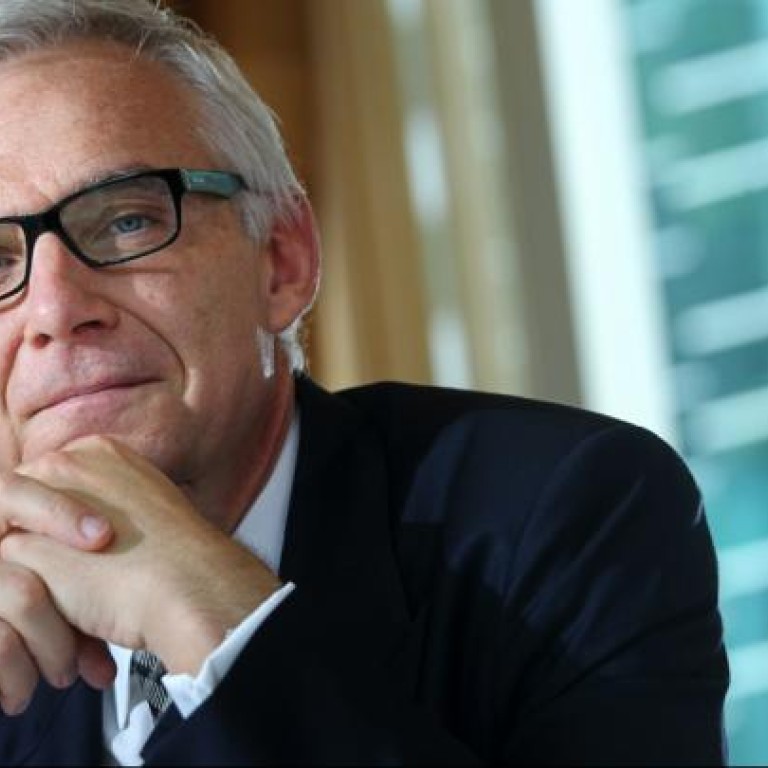
Credit Suisse trains sights on Asia's growing wealth
Swiss lender says bleak economic outlook in Europe is partly behind shift in business focus
Credit Suisse, the second-largest bank in Switzerland, will focus on developing its wealth management and investment banking businesses in Asia in the next few years to tap the region's rapidly growing prosperity.

He said despite the slowdown on the mainland last year, the country's economy still grew by 7.8 per cent, while euro-area gross domestic product shrank 0.5 per cent. He also said studies have shown the number of wealthy individuals in Asia is catching up with that in North America and Japan.
According to Credit Suisse's , China will surpass Japan as the world's second-richest country by 2017, with total household wealth exceeding US$38 trillion. The bank forecasts that by 2017, 25 per cent of the world's US-dollar millionaires will be located in Asia-Pacific, up from 24 per cent today.
Within the region, Japan and China will be the two most important sources of new millionaires in the next five years, with the number of millionaires in Japan projected to reach 5.4 million and the number on the mainland to nearly double to 1.9 million. The ranks of millionaires in Indonesia and Hong Kong are also expected to almost double.
Credit Suisse has 7,400 employees in 12 markets in the region and 440 private banking relationship managers. Over the past four years it has recorded growth of 44 billion Swiss francs (HK$359.07 billion) in net new assets in Asia. Assets under management in Asia are now worth 107 billion francs, about 13 per cent of its assets under management worldwide in its wealth management business.
While many investment banks had to lay off staff last year, partially due to a big fall in the number of initial public offerings in Hong Kong, Rohner said Credit Suisse would continue to hire strategically in Asia.
He said that unlike some investment banks that rely heavily on IPOs, Credit Suisse has more diversified capital-raising, structured financing and corporate advisory businesses, so a decline in the number of IPOs in the city would not hurt it as much.
He also said its investment banking services can tap opportunities in the yuan business as the mainland seeks to internationalise its currency.
"Credit Suisse has, for example, helped corporates raise yuan-denominated dim sum bonds," Rohner said. "The yuan business will continue to be a strategic one for Credit Suisse as the [yuan] is increasingly accepted as an international currency,"
He said the economic outlook this year is better than last year due to strong growth in Asia and the continuing economic recovery in the US. The challenge for Credit Suisse, he said, is that the euro-zone crisis may take a long time to resolve.
"Look what happened in the global markets in reaction to the Cyprus banking crisis. It shows the markets are still very fragile."
Interest rates are another challenge, he said.
"In such a low interest rate environment, it is hard to produce products that meet investors' hunger for yield," he said.

